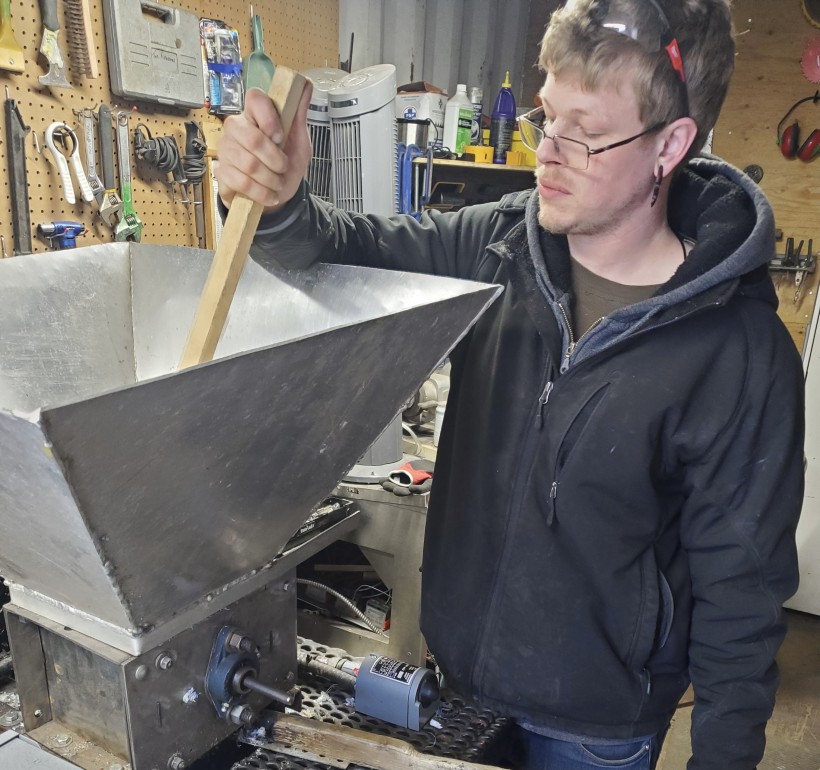Even after decades of attempts by governments and environmental groups to make recycling ubiquitous, the industry faces at least one constant challenge: finding uses for discarded material. But the founder of New Brunswick-based PLAEX Building Systems says his company can help.
PLAEX is developing modular, interlocking bricks made from about 90 percent recycled materials. The bricks lock together similarly to children’s building blocks, making them convenient for use in the construction industry.
CEO Dustin Bowers, now 33, has spent about 18 years working in construction, including as a project manager and later the owner of his own renovation company. The amount of waste material generated by the projects he oversaw alarmed him, and he resolved to find a use for the masses of discarded plastic he was paying to dispose of.
“The volumes were so mind-boggling to me at that point,” he said. “I knew it was going on, but to actually be booking the dumpsters... It was like, ‘Okay, no. There's got to be a better way to do this.’”
Bowers incorporated PLAEX early last year and is building prototypes out of a shipping container in Gagetown, NB, while he works his way through two accelerator programs: Fredericton’s Energia Ventures and the Volta Cohort in Halifax.
He and his two employees are waiting on the results of strength and quality testing for their first, prototype bricks, which they expect to receive by the end of July. Those results will allow them to receive building code certification for “non-occupied structures,” such as retaining walls and sheds.
Approval for occupied buildings, including houses, will come later because the process is, “more rigorous, and for good reasons,” Bowers said.
Once the test results are in, he hopes to start accepting purchase orders for the bricks, with an eye towards leveraging those sales to help raise a round of seed-funding in October or November.
The seed round will go towards funding a new manufacturing facility, located somewhere in central New Brunswick to be close to the farms and marine industrial sites from which Bowers plans to source waste plastic.
He said he chose those two industries because they create waste of consistent types and in significant volumes, allowing his team to access a steady supply of raw materials.
To entice farmers and marine companies to participate, he offers to collect the waste for free, saving them the cost of paying to have it hauled away.
“What we're going to do is set up collection points, like little mini-transfer stations, based around farms,” he said. “In each community, there'll be a designated farm that's a collection point. And then the farmers around them who agreed to supply their waste to us will bring it to that one collection point, and we’ll pick it up from there at certain times throughout the year.”
In the meantime, Bowers is looking to hire two new employees, including an accounting manager who he hopes will eventually become PLAEX’s chief financial officer.
Those hires will be funded partly through several grants from groups such as the federally backed Community Business Development Corporation and Working NB.
Bowers is also planning an international expansion, possibly through licensing deals. To lay the groundwork, he has applied for patents in Canada and the United States, and is preparing to file a PCT, or Patent Cooperation Treaty, application -- an international process that could grant him intellectual property rights in 153 countries.
“India and Nigeria have been countries where we've got some connections, and we've been working to move forward in those directions,” he said. “And then other countries from there, as well. We will definitely target being an international brand.”










